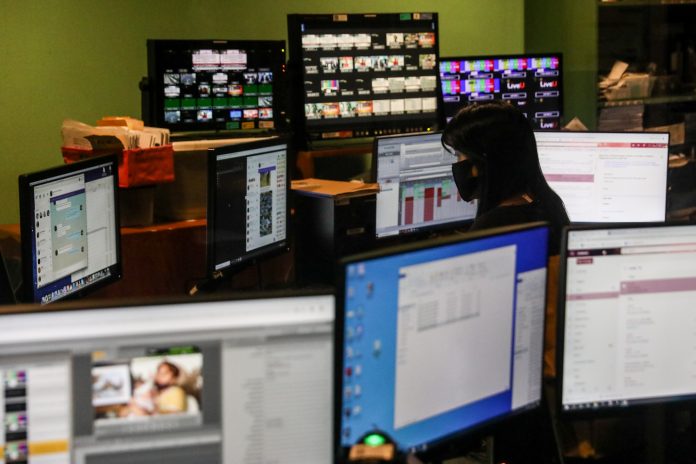Most Filipinos believe that the problem of “fake news” in media is “serious.”
The result of the national Social Weather Survey conducted by pollster Social Weather Stations (SWS) found 69 percent of adult Filipinos saying that “the problem of the spread of fake news in media like television, radio, and newspaper” is “serious.”
Up to 32 percent of the respondents answered “very serious,” 38% “somewhat serious, 21% were undecided, 6% answered “somewhat not serious,” and 3% “not serious at all.”
Compared to December 2017, those who consider the problem of fake news in media as “serious” rose by 9 points from 60% (29% very serious, 31% somewhat serious).
On fake news on the internet, the question was, “In your opinion, how serious is the problem of the spread of fake news on the internet like in Facebook, Twitter, and Youtube?”
To this, 32% answered “very serious,” 35% “somewhat serious,” 24% were undecided, 5% answered “somewhat not serious,” and 3% “not serious at all.”
The December 2021 percentage of those who consider the problem of fake news on the internet as “serious” is similar to the 67% (40% very serious, 26% somewhat serious, correctly rounded) in March 2018, but is 9 points above the 58% (32% very serious, 26% somewhat serious) in December 2017.
The December 2021 survey found 51% saying it is “difficult” for them to know if a piece of news or information from the television, radio, or social media is fake or wrong, while 48% consider it “easy” (consisting of 37% somewhat easy and 11% very easy).
The December 2021 survey also found 20% saying they see or read fake or wrong information on television, radio, or social media often, 40% sometimes, 35% seldom, and 4% never.
Those who consider the problem of fake news in media as serious are higher among those who say spotting fake news is very easy (82%) and somewhat easy (78%) than among those who say spotting fake news is somewhat difficult (62%) and very difficult (58%).
Similarly, those who consider the problem of fake news on the internet as serious are higher among those who say spotting fake news is very easy (79%) and somewhat easy (74%) than among those who say spotting fake news is somewhat difficult (60%, correctly rounded) and very difficult (60%).

Those who consider the problem of fake news in media as serious are highest among those who see or read fake news on television, radio, or social media often (84%), followed by those who encounter fake news sometimes (76%), and seldom (57%).
Among those who say they never see or read fake news on television, radio, or social media, 30% consider the problem of fake news in media as serious.
On the other hand, those who say the problem of fake news on the internet is serious are highest among those who see or read fake news on television, radio, or social media often (82%), followed by those who spot fake news sometimes (73%) and seldom (55%).
Among those who say they never see or read fake news on television, radio, or social media, 31% consider the problem of fake news on the internet as serious.
Those who say the problem of fake news in media is serious are higher among college graduates (74%) and junior high school graduates (75%) than among elementary graduates (63%) and non-elementary graduates (54%).
The Fourth Quarter 2021 Social Weather Survey was conducted from December 12-16, 2021, using face-to-face interviews of 1,440 adults (18 years old and above) nationwide: 360 each in Balance Luzon, Metro Manila, the Visayas, and Mindanao.









